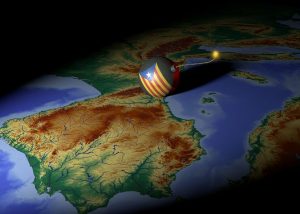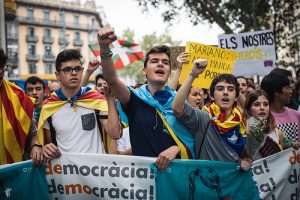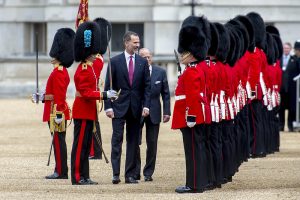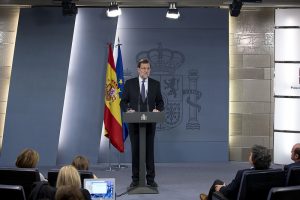The recent events in Catalonia have led to one of the biggest political crises in recent years. The conflict, provoked by the independence referendum in Catalonia, which is not legal according to the Spanish Constitution, has generated great doubts about the future and the union of Spain, as well as tension and social separation found by police actions, political decisions, and the consequences of this serious issue. Here at ShMadrid, we will try to approach this in an objective and impartial way the conflict about the Independence of Catalonia and the problems in which it has created.
Related article: The History of Madrid
Index
Where Does The Conflict Come From?
This problem has been knocking on everyone’s door for decades going back to the years of Franco. The start of this conflict began in 2012, when the sovereignty process began to achieve the right of self-determination and the right to decide on the independence of Catalonia and become a self-democratic Republic. That same year, the “Fiscal Pact” was made, which proposed that Catalonia have a new tax system that would regulate the taxes between the General State Administration and autonomous communities, such as Basque Country. In addition, a resolution was passed by the Parliament of Catalonia to hold a referendum on self-determination, with Artur Mas as President at that time. The Spanish Government’s refusal to recognize the fiscal pact provoked early elections to the Catalan Parliament, with the now-defunct Convergence and Union (CIU) winning and signed a governance pact with the Republican Left of Catalonia (ERC), that included the consultation on Catalonia’s political future.
In 2013, the Declaration of Sovereignty – the right of the Catalan people to choose their future in Spain – was approved in the Catalonia Parliament, and was suspended shortly after by the Constitutional Court, which ruled it unconstitutional. However, on November 9, 2014, a non-binding referendum was held, with more than 2,000,000 people voting and 80.76% of the votes in favor of declaring independence. In 2016, with Carles Puigdemont as Catalan president of the Junts pel Sí (Together for Yes) coalition, the sovereignty process began again in order to hold a formal referendum on the right to decide Catalonia’s future with Spain. Despite all the warnings from the government and the Spanish courts on the illegality of it, the referendum on Catalan independence was held on October 1 this year, where there were major clashes between voters and State Police, leaving more than 800 injured. It has since left the country in a situation of uncertainty regarding the future of Spain.
What Does Madrid Think?
Obviously, the referendum has not sat well in Madrid, considering it unconstitutional and an attack on Spanish democracy, especially from main parties like the Socialist Party (PSOE) and the People’s Party (PP). For its part, the City Council of Madrid is in favor of dialogue between the two governments to reach an agreement and maintain the unity of the country, if neccesary through the use of mediators. Catalonia has responded harshly against President Mariano Rajoy for his uncompromising stance not to talk with the regional government, even saying that “a ruler who does not know how to talk can not continue in the government” and asking for his resignation. Most voices from Madrid have called for calm and restraint and use dialogue to solve this conflict, even asking the European Commission for help, which has already stated that it will not intervene when considering it as an internal conflict. For his part, King Felipe VI offered a televised speech in which he condemned the referendum because it was illegal under constitutional law and accusing Catalan politicians of disobedience and trying to break the unity of the country.
Related article: Valley of the Fallen (Valle de los Caidos)
Other Opinions By Political Figures
The leader of Podemos, Pablo Iglesias, one of the most charismatic political figures in Spain, condemned the King’s speech for causing more tension towards the Catalan people by positioning himself on the side of the Popular Party. He also condemned the excessive violence by the Civil Guard and police when they tried to remove the ballot boxes and has proposed that Rajoy and Puigdemont to agree through a mediator to solve the crisis. Meanwhile, Albert Rivera, the leader of the Citizens Party, urged the Spanish government to utilize Article 155, which would impose direct rule on Catalonia and dissolve the regional government for new elections. On October 27, hours after Catalonia unilaterally declared independence, Article 155 was passed and new regional elections are now set to take place on December 21.
Without a doubt, Spain is experiencing a serious political conflict that we hope will be resolved through dialogue, respect and democracy. What do you think about one of the most complex political conflicts since the Spanish Transition?










